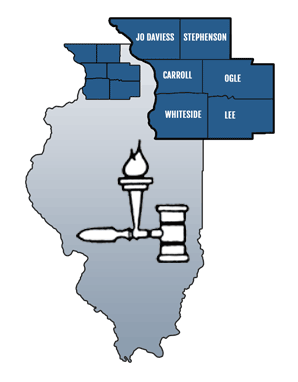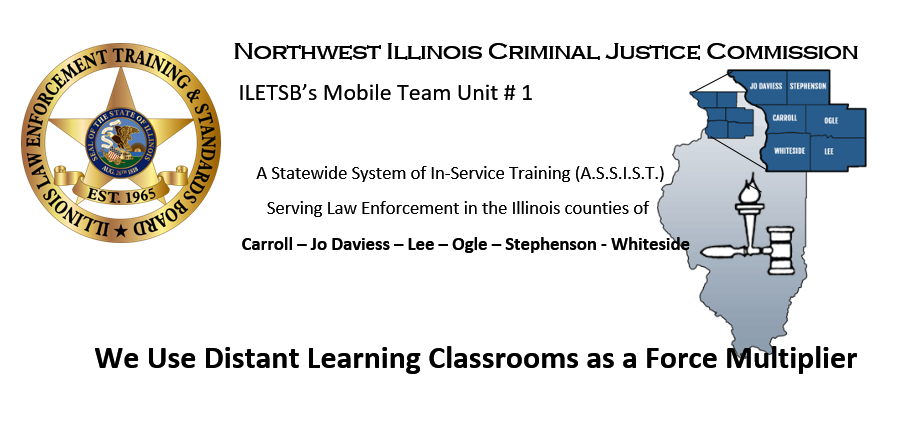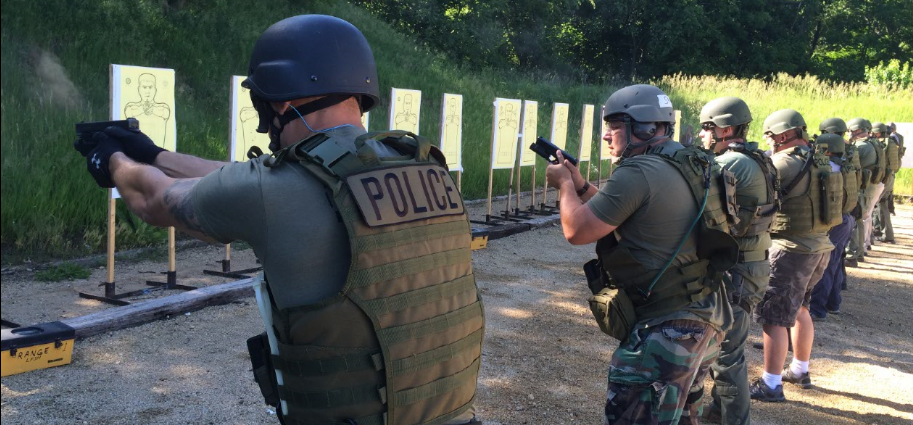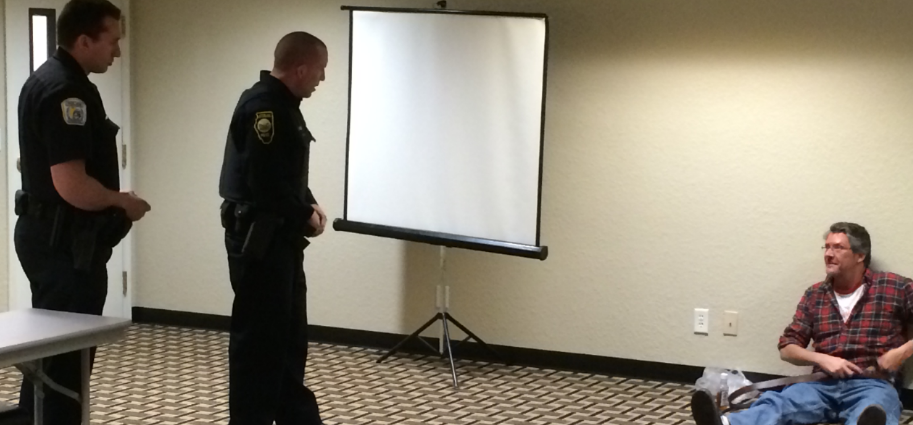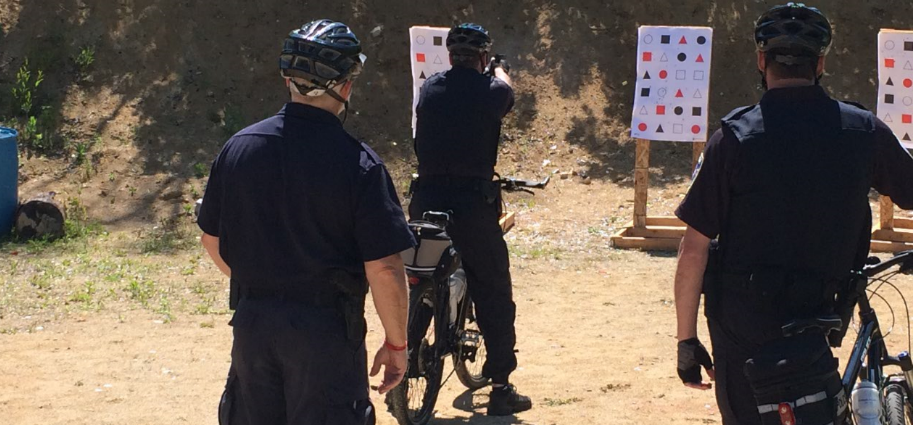40 hr. Crisis Intervention Team Training-Rockford
Waiting List
Ends On: Friday, January 19, 2024
Registration Deadline: Friday, December 15, 2023
Time: 8:00 AM - 5:00 PM
NITAB Training Room
Rockford, IL 61108
Members' Fee: $0
Sworn Non-Members' Fee: $0
Non-Members' Fee: $0
DOWNLOAD FILE
This Course has been approved to meet the following ILETSB mandates.
Civil Rights .5 Hours
Constitutional/Proper use of Authority .5 Hours
Crisis Interventions 12 Hours
Human Rights 7 Hours
Legal Updates 2 Hours
Officer Wellness and Mental Health 4 Hours
Procedural Justice 4 Hours
Use of Forc De-escalation Techniques 8 Hours with 4 Hours Scenario Based
Use of Force Officer Safety Techniques 4 Hours with 3 Hours Scenarion Based
****NEW PREREQUISITE FROM THE TRAINING BOARD: Officers with less than 2 years on the street from date of hire will be denied entry to this class. NO EXCEPTIONS****
Law enforcement officers are generally the first responders to persons in crisis or experiencing symptoms of mental illness. The Crisis Intervention Team Training provides officers with education about mental illness, and provides skills and tools for effectively and safely interacting with someone who is experiencing a crisis.
Crisis Intervention Team Training is an in-depth law enforcement 40-hour state-certified specialized course. These officers will use their skill and knowledge of mental illness and substance abuse to effectively handle the crisis situations.
The key components of this course cover the following:
- Officers are exposed to the basic dynamics of common types of mental illness. This allows the officer to make quick decisions utilizing options they have to resolve the crisis.
- Officers are exposed to the experiences, viewpoints, and concerns of persons with mental illnesses (consumers) and their families.
- Officers receive instruction and demonstrations in listening and responding skills.
- The CIT model of intervention can be both a department-wide model, or an officer-specific career development designation.
Topics include, but are not limited to:
- Mental illness recognition.
- Substance abuse and dual diagnosis.
- Child and adolescent disorders.
- Psychotropic medications.
- Geriatric issues.
- Medical conditions that mimic mental illness.
- Autism and persons with disabilities.
- Law enforcement compliant surrender.
- Excited delirium.
- Risk assessment and crisis intervention skills.
- Symptoms of PTSD and the Police Response;
***Officers MUST be in uniform at start of class on Thursday for scenario training. THIS IS MANDATORY***


